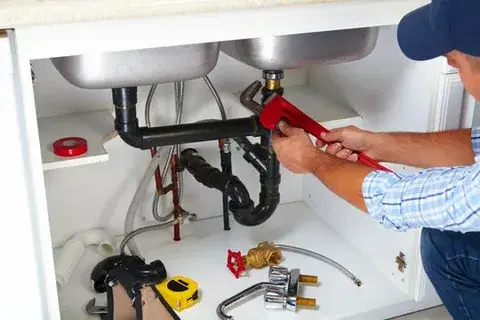How to Choose the Best Security System for Your Home or Business in 2025
- William Jack

- 2 days ago
- 3 min read
Security has never been more important for homeowners and business owners alike. With advancements in technology, security systems today offer far more than just cameras and alarms. From wireless surveillance and motion detection to smart integrations with mobile devices, modern solutions provide real-time protection and peace of mind. If you’re considering upgrading or installing a new security setup in 2025, understanding your options is key to making the best choice for your property and lifestyle.
Understanding Different Security Solutions
Security systems generally include video monitoring, alarms, sensors, and sometimes even smart home integrations. Knowing what each component does will help you select the right fit:
Wireless Surveillance Cameras
Wireless cameras have become the go-to option for most residential and commercial properties. These devices connect through Wi-Fi, eliminating the need for complicated wiring. They offer flexible placement options, making it easier to cover blind spots or hard-to-reach areas. Many come equipped with:
These features allow users to monitor their property remotely, giving a sense of control whether you’re at work or on vacation.
Alarm and Intrusion Detection Systems
Alarms remain a core component of security. Modern alarms are smart — they don’t just sound sirens but can:
Choosing a system with wireless sensors for doors and windows can prevent unauthorized entry while maintaining a clean installation without unsightly wires.
Factors to Consider When Choosing a System
Property Size and Layout
A small apartment requires fewer cameras than a large commercial building or multi-story home. Mapping out entry points, vulnerable areas, and valuables will help determine how many devices you need and where to place them for maximum coverage.
Internet and Power Availability
Many modern systems depend on stable internet connections for remote access and cloud storage of footage. If your location has unreliable internet, consider options that offer local storage or backup cellular connectivity. Also, evaluate power sources—battery-powered cameras offer flexibility but require periodic charging.
Budget and Scalability
Security systems come in a wide range of prices. Consider not only initial costs but also ongoing expenses such as cloud storage subscriptions or professional monitoring fees. Look for solutions that allow you to start small and expand over time as your needs change.
Ease of Use and Integration
User-friendly apps and interfaces make managing security easier. Systems that integrate with existing smart home devices (like voice assistants or lighting) add convenience and allow automation, such as turning on lights when motion is detected.
Benefits of Professional Installation
While many DIY options exist, professional installation ensures:
Professional teams also offer ongoing support and maintenance, helping to keep your system functioning smoothly over time.
Maintaining Your Security System
To ensure your security system continues to perform well:
Routine maintenance can prevent issues that compromise your protection.
Final Thoughts
Investing in a modern security system in 2025 means choosing technology that offers flexibility, reliability, and real-time awareness. Whether protecting your home or business, the right combination of wireless cameras, alarms, and smart features can deter intruders, provide crucial evidence, and give you peace of mind. Understanding your property’s needs, budget, and available options helps you make an informed decision that keeps your space safe for years to come.
FAQs
1. How many cameras do I need for my property?
The number depends on your property size and layout, but typically 4–8 cameras provide good coverage for small to medium homes and businesses.
2. Can I access my security system remotely?
Yes, most modern wireless cameras and alarms allow remote access through smartphone apps for real-time monitoring.
3. Do I need internet for my security system to work?
Internet is essential for remote monitoring and cloud storage. Some systems offer local storage if internet is unreliable.
4. How often should I maintain my system?
Check and clean components monthly, update software regularly, and test alarms every few months.
5. Is professional installation necessary? Professional installation ensures optimal setup and coverage, reducing blind spots and connectivity issues, especially for larger or complex properties.




Comments